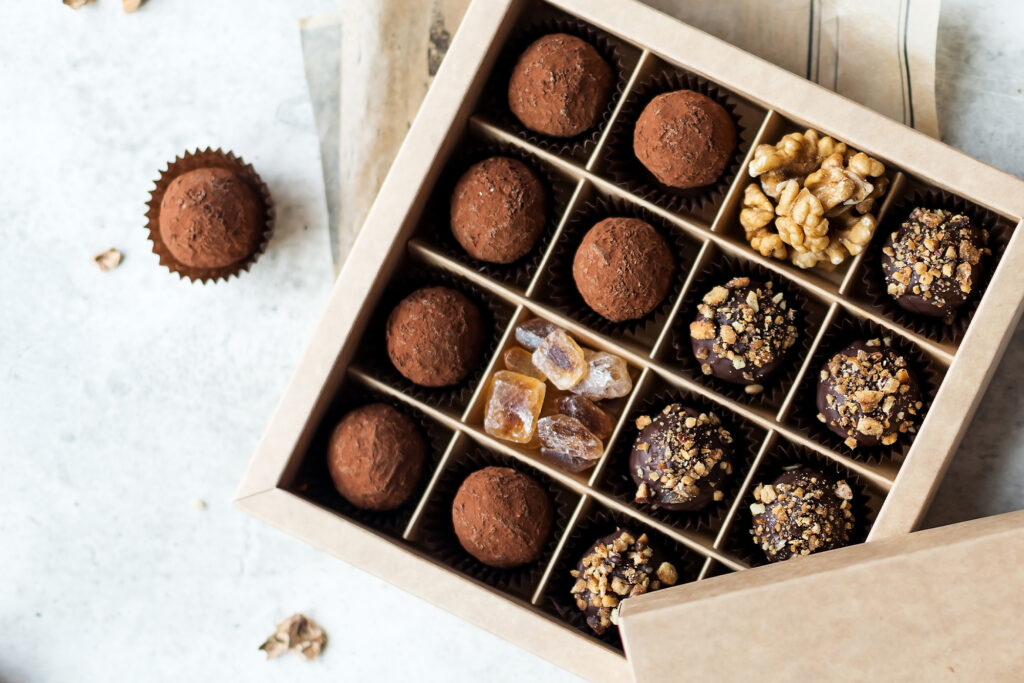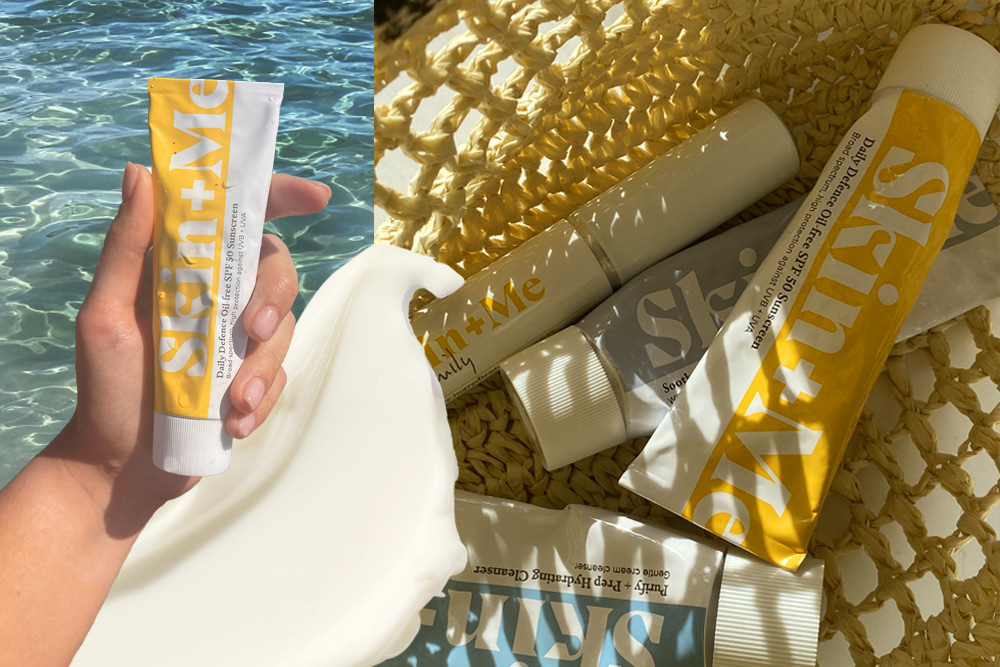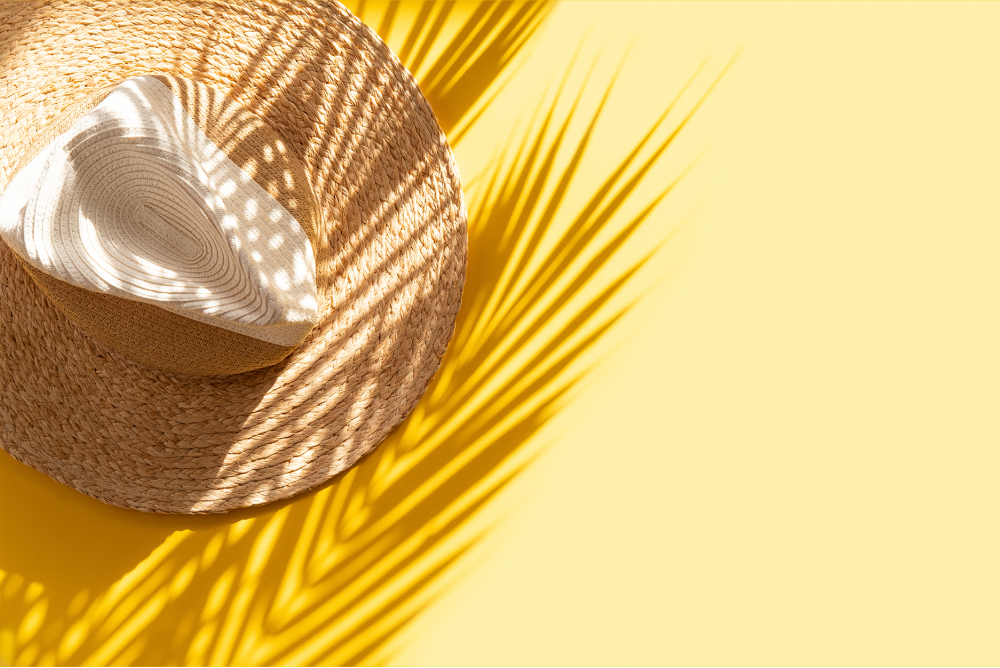Ask A Dermatologist: Why Are Sunscreen Filters So Important?

Link to share article here:
Ask A Dermatologist: Is Chocolate Bad for Your Skin?
First things first, there’s no upper age limit on advent calendars – cased closed.
With that out of the way, Christmas is awash with sweet delights, from chocolate Santas to selection boxes. As a result, you might be wondering how much of an impact this festive period is going to have on your skin. We asked Dr Malvina Cunningham, Consultant Dermatologist at Skin + Me, if a few days of chocolate indulgence can really cause breakouts. Here’s what she told us.
Is chocolate bad for my skin?
Over the years, the clinical relationship between diet and skin, and in particular when it comes to acne, has been controversial.
Doctors previously thought that the things we eat had nothing to do with skin diseases, whereas now we definitely know it plays a role. The exact relationship between diet and skin still isn’t clear but one thing’s for sure – it’s really difficult to perform studies in nutrition.
A number of studies have evaluated the effect of sugar consumption and low-glycaemic load diets on acne. However, there’s not enough evidence yet to support any strong conclusions.
Studies have shown an association between the two, but since large numbers of participants are needed for these studies, it’s too difficult to isolate one food or nutrient only to show a direct effect.
Participants may have varying food patterns, daily behaviours, genetics and risk factors that will all influence the outcomes. There’s a big variation between different types of chocolate too, for example: milk and dark chocolate, added sugar content and other added ingredients.
A study may show that there is an association with a particular food and skin condition, but this doesn’t necessarily prove causality and could be influenced by many other factors.
How does sugar and dairy affect my skin?
Several studies provide evidence that amino acids derived from milk can stimulate insulin and IGF-1 secretion – a growth hormone known to be essential in the development of acne. Indeed, a number of studies also report that dairy intake (whether full fat or skimmed) is associated with a higher incidence of acne.
When it comes to sugar and acne there is evidence that high glycaemic index foods are associated with increased inflammation and acne.
However, these studies only show a link between dairy, sugar and acne, and can’t tell you if dairy or sugar is actually the cause of the acne. And, more importantly, these studies don’t prove that cutting sugar or dairy out of your diet can actually help to get rid of acne.
“A number of studies have shown an association between sugar consumption and dairy, in particular semi-skimmed milk and acne,” Dr Malvina explains, “These studies also vary greatly in quality, and they don’t take other dietary factors into account, such as a lower glycaemic index, or calorie intake in individuals who consume less dairy as part of their natural daily diet.”
“Currently there is no specific diet advice for patients with acne as the evidence is not conclusive.”
dr malvina cunningham
Is dark chocolate better for acne than normal chocolate?
“Not all chocolate is the same, and the amount of sugar and other additives will vary, as will other factors such as fats. In theory, chocolate with lower amounts of sugar is less likely to cause acne, but the lack of substantial evidence to link the two would mean that no one can say for sure.”
Dark chocolate with at least 70% cocoa content and the least amount of added sugar is probably the best choice.
Should I stop eating chocolate?
In short, only if you don’t want to eat it! Acne is a complex condition with multiple triggers and our understanding currently does not suggest that avoiding chocolate alone will reduce your chance of acne. “That is not to say however that nutrition doesn’t play a role. On the contrary, the field of nutrition and its influence on health is exploding.” A healthy, balanced diet is beneficial to your overall health and wellbeing and that will ultimately also be good for your skin.
“I do have patients that have benefited from reducing sugar and or dairy in their diet but many haven’t noticed any difference in their acne at all.”
dr malvina cunningham
As always there doesn’t seem to be one piece of advice that fits all, and it is clear that broad dietary advice doesn’t work for individuals. Dr Malvina tells us, “I do have patients that have benefited from reducing sugar and or dairy in their diet but many haven’t noticed any difference in their acne at all.”
Instead, Dr Malvina suggests “managing acne with a combination of evidenced-based medical treatment as well as individualised healthy lifestyle advice. This is to get the best out of your medical treatment, but also to maintain the benefits of any treatment and to prevent future breakouts.”
Good news then – pass the Quality Street tin.
New to Skin + Me? Get your first month of personalised skincare for £4.99 with promo code DOSE – complete our quick consultation here.
Looking for a routine refresh? Add the Dream Routine to your Skin + Me subscription.
In need of a restock? Head to The Skincare Shop for one-off purchases of your Routine Essentials.



